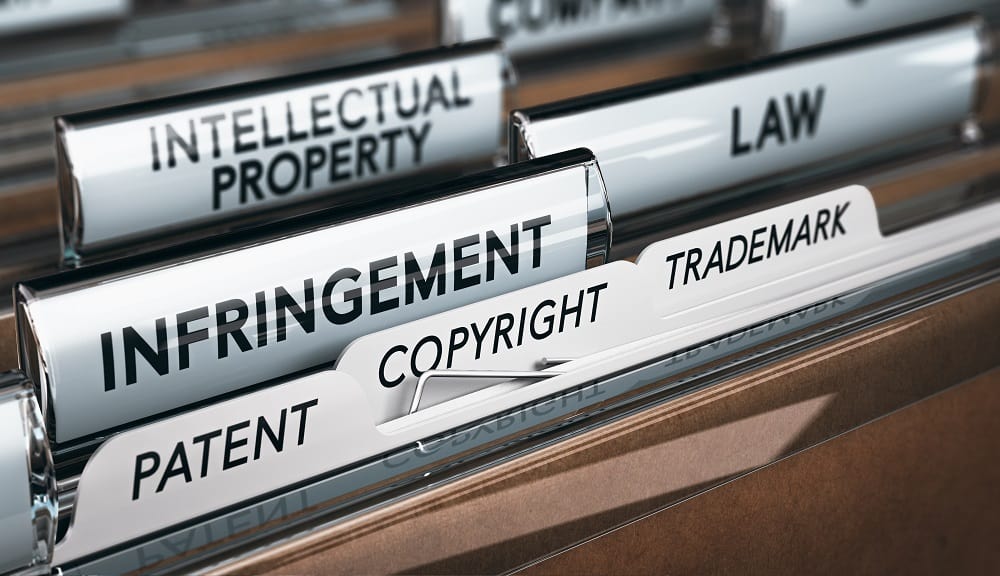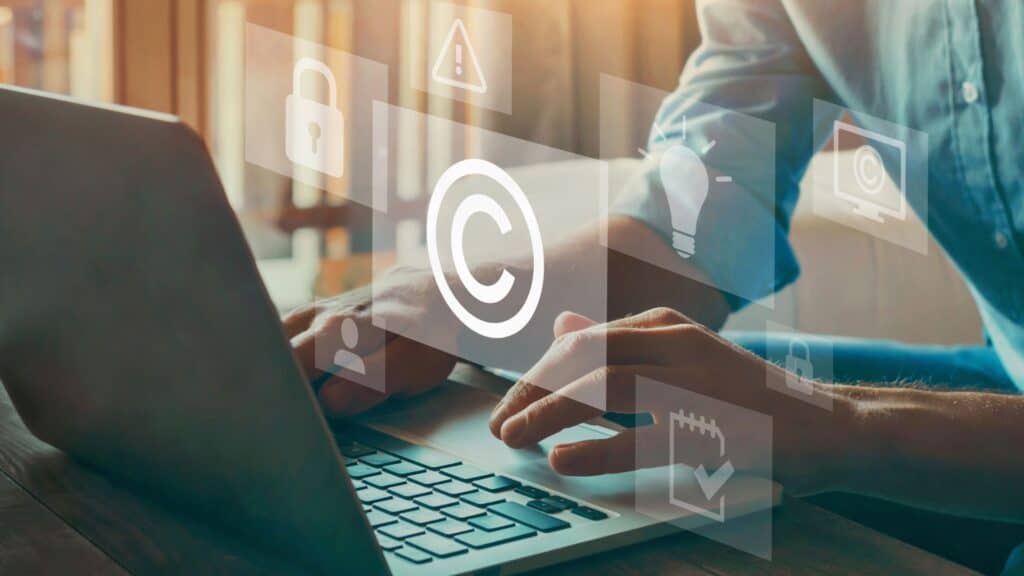This article will explain what Intellectual Property (IP) is, the benefits of fully understanding your IP, and how to maximise this often-overlooked asset. We speak to business owners daily about their professional business service needs, and one thing that often gets lost in the mix is their IP protection. Many consider it an issue for larger companies, designers, or inventors; however, as experienced IP experts, we know it can be one of any business’s most valuable assets. We also know how much of a headache it can be in cases of copying or unintentional infringement. In this article, we’ll get you IP savvy and outline the importance of an IP audit for your business.
What is Intellectual Property (IP)?
Intellectual Property (IP) refers to many different creative outputs your business may have or use commercially. A universal type of IP across different industries is branding. This could be the name of your business, the logo, or the two combined. Every size and type of business will have some sort of IP that is valuable – exactly what it is and how best to protect it needs to be investigated.
What are the different types of IP?
There are several forms of Intellectual Property. Some are automatically covered upon their creation, others need a formal process to be legally protected, but all require action to uphold their integrity.

Copyright ©
This is automatically covered in UK law when a new piece of writing, photography, music, or recording is created. If you wish to enforce your ownership of the IP and prevent others from copying, you will have to issue a cease-and-desist notice. If this is ignored, then you may have to initiate court proceedings.
Business Name Registration
‘Passing off’ is a common law action that can be used to protect unregistered trade mark rights in the UK. For example, if you believe another business is copying your business’ name and customers may confuse the two operations, you can legally ask the company to cease and desist. However, you will be responsible for the legal fees should the case go to court, and it could take some time to resolve. Start.biz offer Business Name Registration to cover this exact situation. For a low yearly fee, Start.biz will take care of all administration and cover your court fees up to £10,000.
Trade Marks (TM)
You can trade mark a name, word, logo, monogram, shape, letters, numerals, signature, or any combination of these. It takes around 5 months to secure a trade mark in the UK; however, your intellectual property protection rights start the day you submit your application. Trade marks are renewable every 10 years, with a 6-month window on either side. To maintain the validity of your trade mark, you should put a watching search in place. This will alert you to any other parties registering similar marks that may infringe on your intellectual property. Trade marks can last indefinitely, however, they need to be maintained and potential conflicting applications flagged to retain their validity.
Registered Design (RD)
A registered design protects the appearance, physical shape, configuration, and decoration of products. After approval has been given for protection, you will need to renew every 5 years up to a maximum of 25 years.
Patents
Patents are designed to protect a new process through a technical solution. These are usually applied for by inventors or larger companies in the manufacturing or pharmaceutical industries. A patent lasts 5 years in the UK. After this time, it will have to be renewed every year up to a maximum of 20 years.
Geographical Indications (GI)
This type of IP relates to food, drink or produce from a particular area or is made using a traditional method. Examples are Stilton cheese or Champagne. GI indicates to consumers the origin and authenticity of a product. You can register a product under a current scheme or apply for a new scheme to be added to the register.
Types of IP Audits
Now that we have a better understanding of what IP is, let’s look at why an IP audit could be useful to your business.

General Purpose IP Audit
It is useful to conduct a General Purpose IP Audit as early as possible in your company’s life cycle and continually as you introduce new products, brands, or creative output. It should be conducted as part of your market research, and protection should be put in place before the asset goes out into the public consciousness. This will not only deter potential copiers but also make you aware if you are unintentionally infringing on anyone else’s IP. Once you have a comprehensive understanding of all the IP your business has, you will be able to put a monetary value on it and turn it into a tangible asset for the company.
Event-Driven IP Audit
Businesses do not always grow in a linear way to fit a General Purpose IP Audit. This is where we see audits being carried out after a period of time due to an event. These Event-Driven IP Audits usually fall into 3 categories:
- An infringement has occurred, and the company wishes to take action.
- The business owner is looking to sell.
- Outside investment is being sought.
If an incident has occurred where a business believes its IP has been violated, in most cases, they must first have intellectual property protection in place. The onus is on them to prove there has been an infringement, and this can be a complicated process. We would always advise seeking an expert opinion before initiating proceedings.
In the case of wishing to sell the business, when conducting due diligence, any potential buyer of the company will want to fully understand what they are purchasing. If you don’t have any intellectual property rights to your brand, products, or services, it will reduce the interest from buyers.
Similarly, potential investors will want to understand the business’ assets and gain reassurance of its protected competitive edge. A great idea might grab their attention, but they will not view the company as a sound opportunity if there is no intellectual property protection in place.
Limited Purpose IP Audit
Limited purpose refers to an activity a business carries out that is only meant for internal use. Understanding your business’s intellectual property is incredibly important, not only to protect your IP but also to ensure you’re not infringing on others’ IP. Many business owners have a deep connection to the name and brand they are building, so it is essential you review your IP and business plan together to ensure you’re not building something that may be an issue further down the line. Many IP experts offer free consultations that will give you a top-line view of any potential problems. There may be budgetary constraints for small businesses; however, putting in place correct IP protection from the start can save you time and money in the long run.
The Importance of IP Audits
We’ve looked at the different types of IP audits and what they can mean for the business; now, let’s see what intellectual property protection audits can do for a company in relation to the wider marketplace.

Identifying New Opportunities
As mentioned previously, an intellectual property audit should be carried out in conjunction with your market and competitor research. Not only will this help you determine potential developments in your offering, but it will also help you pinpoint what is unique about your company. Depending on your industry and business, it may also encourage innovation in your product development or engineering department. Conversely, it will also outline what features of your competitor’s offering aren’t protected by intellectual property law, allowing you to plan your marketing and product development strategy accordingly.
Customer Perception
If you spent time getting an IP audit and protecting your creative output, the business needs to be communicating that to potential customers. Consumers will not care that you have a trade mark or any other form of IP protection, but they will buy into a unique brand. It’s about storytelling, brand building, and having a distinctive voice that sets you apart. Ensuring no one can imitate your brand will only make it stronger and enable you to resonate effectively with your ideal customer.
Preventing Costly Disputes
Intellectual property law can be complicated, and the process to either defend or prevent another company from infringing can be lengthy. The average lawyer will charge around £250 per hour, and these cases can continue for months, if not years. The best way to prevent this is to secure your IP protection early, ideally before launching the business.
Conclusion
Through an Intellectual Property Audit, you can understand the assets your business has, build a strong brand identity, and distinguish yourself from your competitors. Whether you are planning on selling your business or not, preventing copycats is invaluable to the health of your venture. Considering the different types of IP protection for your business will allow you to improve your business plan, strategies, and marketing efforts. After all, knowledge is power!







